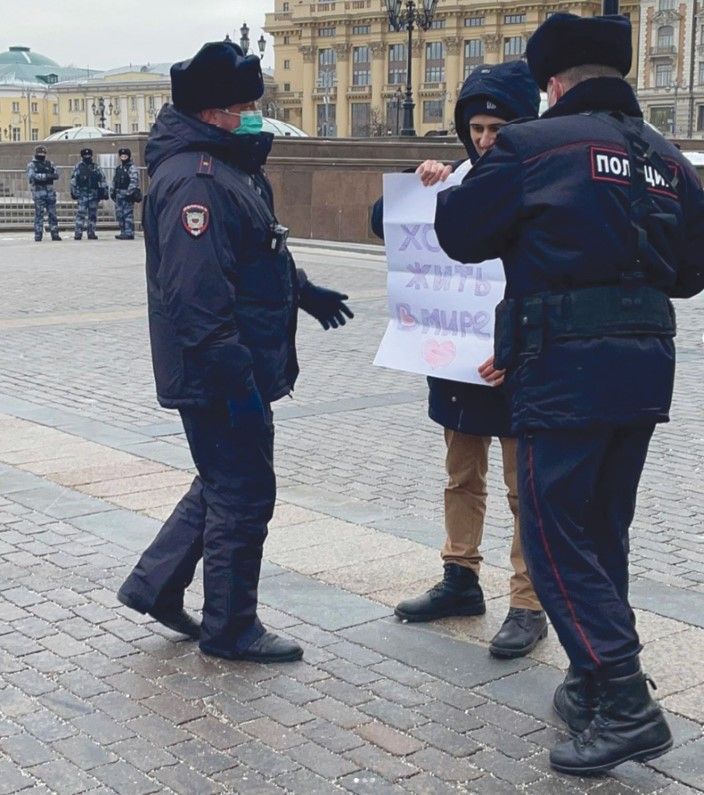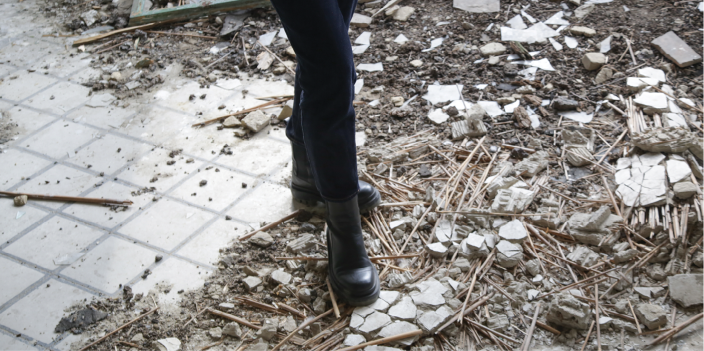Experts agree that education can play a positive role for children affected by war, and teachers who have fled Ukraine say distance learning helps their students feela sense of connection, purpose,and routine.
The intergovernmental Safe Schools Declaration states that education can “alleviate the psychological impact of armed conflict by offering routine and stability”.
Help from other countries
Sharing a border with Ukraine, Poland has welcomed an enormous influx of refugees. But its school system is struggling to cope and there is an extreme teacher shortage.
In March, the head of the Polish Teachers’ Union (ZNP) Sławomir Broniarz, warned that up to 50,000 new teachers could be needed to cope with the influx as more than 85,000 Ukrainian students had registered at Polish schools.
“We are heading for an education tsunami,” he said. “Regardless of teacher shortages, the persisting issue of unattractiveness of the profession, lack of state support and heavy workloads, teachers are doing everything possible to support refugee students.”
In Ireland, Ukrainian teachers will be fast-tracked through registration to ensure schools are ready to meet the needs of refugees. The UK may follow suit with Secretary of State for Education Nadhim Zahawi saying his team is looking for ways to recognise the qualifications of Ukrainian teachers.
In Germany, the Ministry of General and Vocational Education said Germany is drawing on lessons learned from welcoming Syrian refugees. Measures put in place in 2015 are now helping accelerate the response to the current crisis.
Meeting with refugees in Romania, United States First Lady Dr Jill Biden said, “teachers are the glue that help these kids deal with their trauma and deal with the emotion and help give them a sense of normalcy”.
Anti-war oppression in Russia
Russians who speak out against the war face serious consequences. Harsh new laws have been introduced, with speaking out against the war punishable by up to 15 years in jail.
Thousands of anti-war protesters have already been detained and even school children have been arrested for placing flowers and ‘No war’ posters outside the Ukrainian Embassy in Moscow.
Geography teacher Kamran Manafly lost his job after an Instagram post opposing the war. “I have my own opinion,” Manafly posted. “These views clearly do not coincide with the state’s opinion. I don’t want to be a mirror for state propaganda.”
Returning to school to collect his things, Manafly was barred from entering. He was called a “traitor to the motherland” and the principal of his school said she would “do everything in her power to have Kamran thrown in prison for 15 years”.
Amid concerns for his safety, he fled Russia, abandoning his beloved teaching profession.
Calling Australia home
Since 23 February, more than 3500 Ukrainian nationals have arrived in Australia. One student who is settling into school life in Sydney is 14-year-old Denis Oborskyi.
Denis fled Ukraine with his mother and siblings in late February. He now attends Xavier College in Sydney’s west.
IEU member and principal of Xavier College, Michael Pate, said Denis started at the school after his aunt contacted the parish priest seeking assistance. “Our Executive Directors made it clear that our doors are open to kids that have fled a war-torn environment,” Pate told the Sydney Morning Herald.
With the help of his teachers, classmates and a little Google Translate, Denis is settling well into his new school.
The people of Ukraine will bear the horrors of this conflict for many years to come. An end to the war is the only way to give them back even a fraction of what they have lost.




































































































































